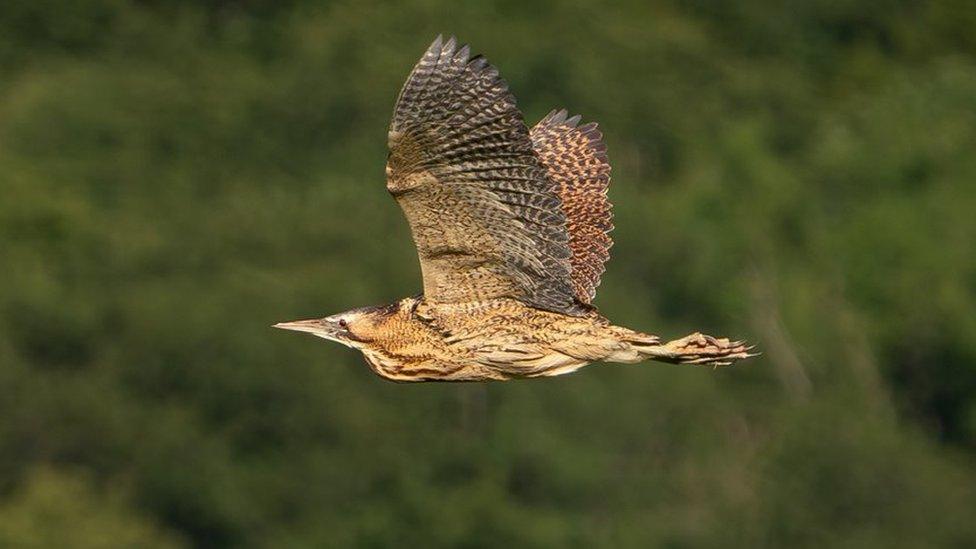Bitterns: Britain's loudest birds are booming once again
- Published
Bitterns: Britain's loudest birds are booming once again
Britain's loudest birds are "having an incredible start to the season" after making a comeback in Lancashire.
The RSPB reported ten "booming" male bitterns at Leighton Moss, Silverdale, the greatest number since the 1990s.
Just 11 of the birds - once extinct in Britain - were recorded making their distinctive sound in the whole of 1997.
Site manager Jarrod Sneyd said it was "very encouraging" to hear them so early in the year.
RSPB Leighton Moss is home to the largest reedbed in the north-west of England, which provides the ideal habitat for the secretive bird.
Last year was a bumper year for bitterns at Leighton Moss, with nine males heard booming and four known nest sites.
But this year has potential to better still, with the ten having already been heard across the reserve, the charity said.
"Their cryptic camouflage and stealthy behaviour can make them very difficult to see, so hearing their boom is one of the only ways we ever know how many there are lurking amongst the reeds on the reserve," Mr Sneyd said.
He added: "Bitterns have always been a key species for Leighton Moss, and we've worked incredibly hard to restore and carefully manage essential reedbed habitat.
"Bitterns have quite specific requirements, that required many years of research to fully understand.
"To hear so many booming at this time of year across the reserve means that our work has been successful and it's reassuring to know that it's attracting new birds all the time."
According to the RSPB, bitterns vanished from Britain in the 1870s and, after making a comeback, almost went extinct again in the 1990s.


Bitterns are a type of heron that can be elusive and secretive, silently moving through the reeds at the water's edge, searching out fish and invertebrates
Between February and May, male bitterns make a low frequency "boom" to mark their territories and attract a mate
The sound which is not dissimilar to someone blowing across a milk bottle top can be heard up to three miles away
The bittern faced extinction as a breeding bird in the UK in the 1900s due to large scale habitat loss
Source RSPB

Why not follow BBC Lancashire on Facebook, external, X, external and Instagram, external? You can also send story ideas to northwest.newsonline@bbc.co.uk, external
Related topics
- Published23 March 2023
